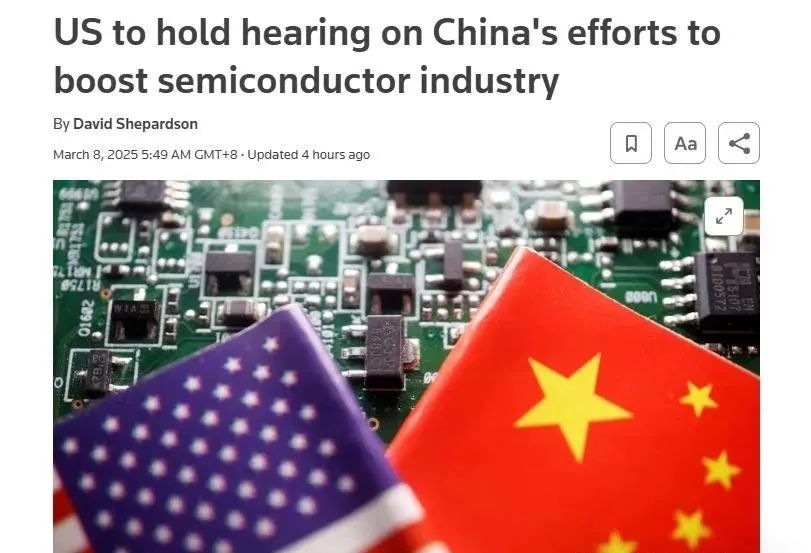
美国搬出了《1974年贸易法》的 “301条款” (贸易战的经典工具),指控中国通过“非市场手段”主导半导体行业,包括:
美国拟就中国半导体产业推进召开听证会及其影响分析
随着全球半导体产业的竞争加剧,美国政府对中国半导体产业的政策持续收紧。近期,美国贸易代表办公室(USTR)宣布将于2025年3月11日召开听证会,讨论中国传统半导体(14纳米以上制程芯片)的市场发展情况,并探讨进一步提高相关关税的可能性。这一举措正值美国半导体制造业振兴计划的关键阶段,同时也与中美贸易关系的长期博弈密切相关。本文将深入分析此次听证会的背景、政策动因、市场影响以及未来可能的演变趋势。

2024年12月,美国政府依据《1974年贸易法》第301条,启动了针对中国传统半导体行业的调查。此举被认为是为了应对中国近年来在芯片制造领域的快速增长,特别是在传统芯片(即采用十多年前制造工艺的半导体)方面的产能扩张。
美国政府担忧,中国通过大规模政策扶持,使本国企业在全球市场上获得不公平的竞争优势。为了应对这一情况,美国自2025年1月1日起,已对中国进口的成熟半导体产品征收50%的关税,而此次听证会将进一步讨论是否需要加码制裁。
The probe, which was started under then-President Joe Biden in December, aims to protect American and other semiconductor producers from China's massive state-driven buildup of domestic chip supply. A 50% U.S. tariff on Chinese semiconductors started on Jan. 1.
Legacy chips use older manufacturing processes introduced more than a decade ago and are often far simpler than chips used in AI applications or sophisticated microprocessors.
The Commerce Department said in December that two-thirds of U.S. products using chips had Chinese legacy chips in them, and half of U.S. companies did not know the origin of their chips including some in the defense industry.
© 滤波器 微信公众号
